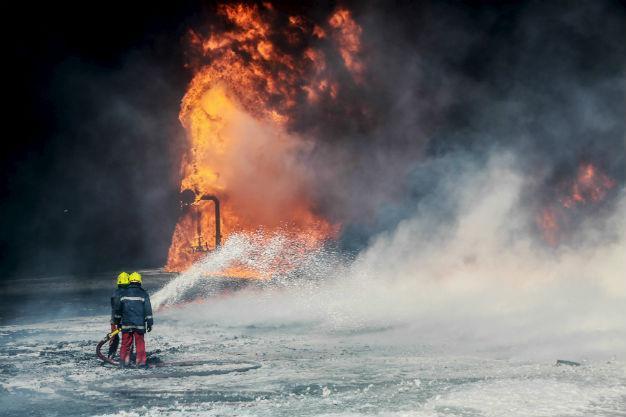US says weighing ‘military options’ in Libya
WASHINGTON – Agence France-Presse

REUTERS photo
The United Sates is weighing potential military options in Libya as the Islamic State of Iraq and the Levant (ISIL) jihadists expand their influence in the north African nation roiled by political instability, a Pentagon official said Jan. 27.The growing ISIL presence in Libya is a “significant concern” and the United States is assessing how best to respond to the group’s “metastasis” from Iraq and Syria, said Pentagon press secretary Peter Cook.
“We’re looking at military options, a range of other options as... the situation in Libya unfolds,” Cook said.
“We want to be prepared, as the Department of Defense always wants to be prepared, in the event that ISIL in Libya becomes more of a threat than it is even today,” he added.
In 2011, an uprising against longtime Libyan dictator Moammer Kadhafi quickly became an armed revolution backed by NATO, but his overthrow and killing have been followed by continued strife and political chaos.
Last June, ISIL fighters captured Sirte, 450 kilometers east of Tripoli. The group already controlled the city’s airport and a nearby power plant.
In recent weeks, ISIL jihadists launched attacks from Sirte against facilities in the “oil crescent” along the coast.
Reluctant to see its 17-month air campaign against the ISIL group in Iraq and Syria spread to a third country, the United States has repeatedly stressed the importance of finding cooperative local partners in Libya, and international allies such as France and Italy to help lead any operations there.
In December 2015, the Pentagon acknowledged that a group of U.S. special operations troops who had traveled to Libya to “foster relationships” was kicked out of the conflict-torn country soon after they arrived.
Additionally, the United States has already taken some action in Libya. In November, it launched an air strike killing top ISIL leader Abu Nabil, an Iraqi also known as Wissam Najm Abd Zayd al-Zubaydi.
The ISIL group is reported to have at least 3,000 fighters in Libya.
Meanwhile, Libya on Jan. 27 asked the World Health Organization (WHO) to raise the emergency level in the country to the highest category, saying it would help mobilize resources for people in need.
There are currently five crises that WHO has classified as “level-three” health emergencies: Iraq, Sudan, Syria, Yemen and the parts of western Africa hit hardest by Ebola.
In principle, the classification calls for maximum medical personnel and supplies in to be sent to the crisis zone.
“We are asking the WHO today to raise the emergency level for the health system in Libya to the highest possible level,” the country’s health minister Reida El Oakley told reporters in Geneva.
He said persistent fighting in the conflict-scarred country had forced the closure or partial breakdown of 60 to 70 percent of the country’s hospitals and that the country needed $3 million (2.7 million euros) per day to buy medicine.
He added that collapsing oil prices had also hit revenues in the crude producing country, which is hoping to begin emerging from crisis after an agreement on a new unity government was reached earlier this month.
WHO spokesman Tarik Jasarevic told AFP that the global health body had received and would review the Libyan request.
















